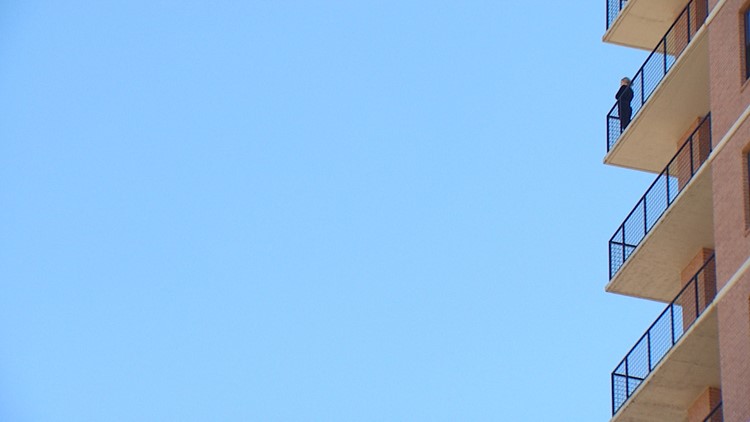DALLAS — This article originally appeared in the Dallas Business Journal , a WFAA news content partner. Rental rates in the Dallas-Fort Worth apartment market are slowing their roll after hurtling higher during the pandemic — but at least one forecast calls for more double-digit percentage increases in the year ahead. For the time being, rent growth is easing for the season in North Texas and nationwide — a welcome sign for apartment hunters who have battled rapid price increases throughout the pandemic.
Rents in Dallas decreased 0. 1% month-over-month in September, compared to a 0. 2% decrease nationally , according to Apartment List.
Month-over-month growth in Dallas ranked 33rd among the nation’s 100 largest cities. The national median decrease in September was the first monthly decline since last December. Year-over-year rent growth in Dallas proper currently stands at 12.
3%, compared to 13. 9% at this time last year. Year-over-year growth in Dallas ranks 11th among the nation’s 100 largest cities, according to Apartment List, and rents in the city are up an eye-bulging 25.
3% since the start of the pandemic in March 2020. Median rents in the City of Dallas stand at $1,244 for a one-bedroom apartment and $1,487 for a two-bedroom. Dallas’ year-over-year rent growth leads the state average of 8.
3%, as well as the national average of 7. 5%. Throughout North Texas, Plano rents are the highest, at a median of $2,010 monthly for a two-bedroom apartment.
The best bargains can be found in Fort Worth and Arlington, with a median rent of $1,350 and $1,340, respectively, for a two-bedroom pad, according to Apartment List. . Elsewhere in Texas, rents have grown by 8.
3% in Austin, 7. 8% in San Antonio, and 4. 7% in Houston over the past year.
Apartment List found in a separate report that suburbs of large metros have been experiencing notably faster rent growth than the core cities that they surround. That’s true nationally and in Dallas-Fort Worth. From the start of the pandemic in March 2020 to present, City of Dallas rents are up by 25.
3%, while DFW’s suburbs have seen rents rise by 28. 4%. Nationwide since March 2020, rents have increased by an average 19.
8% in the core cities of large metros, while the suburbs of these metros have seen rents spike by 27. 2%. The movement to remote work has made proximity to the office less of a concern for housing choice, Apartment List senior research associate Rob Warnock said in an email to the Dallas Business Journal.
“Over the past two-and-a-half years, the rental market has been on a rollercoaster ride as the pandemic has shaken up the ways that we live and work,” Warnock said. Among the 39 U. S.
metros Apartment List analyzed, 33 have seen rent growth in the suburbs outpacing that of the core cities. On average, rent growth has been fastest in the suburbs that sit farthest from the urban core. Looking ahead, rents in Dallas-Fort Worth are forecast to rise by roughly 11%, according to a new report by real estate data firm Yardi Systems.
That’s more than any other major Texas market. Yardi points to a relatively low supply, with less than 4% of the North Texas apartment market vacant, and high demand for rental units from the influx of people moving into DFW. Apartment occupancy appears to have plateaued in DFW, according to the October Market Line report from ApartmentData.
com. At 92. 9% occupancy, Dallas-Fort Worth’s apartment market leads the state’s major metro areas.
Occupancy in the Houston area stands at 91%, and the San Antonio and Austin areas are currently both at 91. 9%. In a recent analysis of the Texas market, ApartmentData.
com president Bruce McClenny noted that “2023 is shaping up to be a year when flat might be considered a win. ” Said McClenny in the analysis: “Recall that 2021 was a year that pushed through at least three years of growth. ”.
From: wfaa
URL: https://www.wfaa.com/article/money/economy/dallas-fort-worth-rent-hikes-easing-but-future-spikes-could-come-soon/287-8361dc34-85a2-443b-a4a6-28b9acde343e



